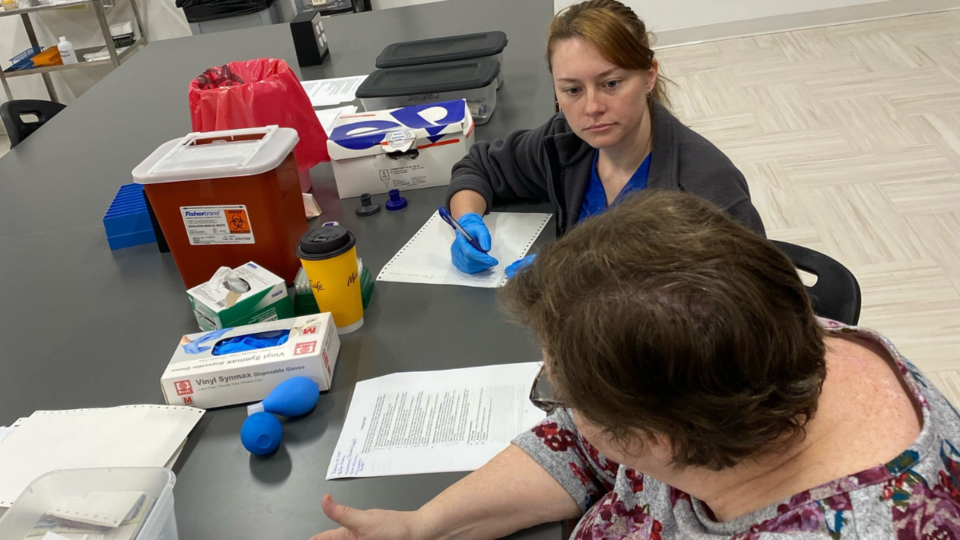Researchers in the Waters College of Health Professions (WCHP) at Georgia Southern University are studying why Black adults in America are 30% more likely to die from cardiovascular disease (CVD) than white adults through a study on racial disparities and cardiovascular health.
Faculty and graduate students in the University’s Biodynamics and Human Performance Center and Medical Laboratory Sciences program have teamed up to examine the biological basis for these racial differences to aid in the development of effective prevention and treatment strategies.
“More than half of this racial disparity may be attributed to substantially greater rates of high blood pressure and vascular dysfunction in Black adults,” said Greg Grosicki, Ph.D. Grosicki is the principal investigator on the study and assistant professor in WCHP). The team is examining the difference in skin pigmentation, which can influence cardio preventive vitamin D levels.
Through the use of an enzyme-linked immunosorbent assay (ELISA), a biochemical test to measure antibodies, antigens, proteins and glycoproteins in biological samples, the team is able to measure vitamin D levels in plasma samples.
By pairing vitamin D values with measures of skin pigmentation and the team’s comprehensive assessments of cardiovascular health, they are able to determine whether low vitamin D levels may be contributing to higher blood pressure and vascular dysfunction in Black adults, which will help inform future interventions and therapeutic strategies seeking to alleviate racial disparities in CVD.
The ELISAs were purchased using a Graduate Student Organization grant awarded to Josiah Frederic, a graduate student studying sports medicine.
The research team consists of both faculty and students from the Department of Health Sciences and Kinesiology. The team also includes the Department of Diagnostic and Therapeutic Sciences.
Waters College Team members include the following:
- Brett Cross, graduate sports medicine student
- Joe Vondrasek, graduate sports medicine student
- Josiah Frederic, graduate sports medicine student
- Zoe Lincoln, undergraduate health science student
- Peter Gaither, graduate sports medicine student
- Wesley Blumenburg, graduate sports medicine student
- Andrew Flatt, Ph.D., assistant professor
- Greg Grosicki, Ph.D., principal investigator and assistant professor
- Amy Frazier, lecturer
- Carol Jordan, clinical coordinator and senior lecturer
- Anna Bryan, undergraduate medical laboratory sciences student




